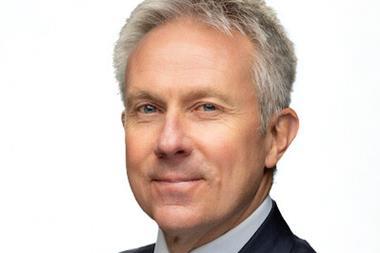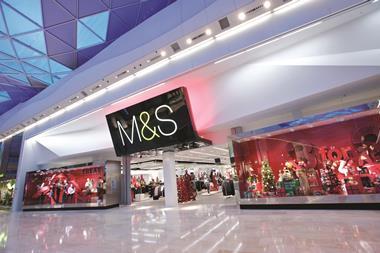As we celebrate the most influential, inspiring and impressive leaders impacting retail for the 20th year, Retail Week executive editor George MacDonald introduces this year’s list and shares his thoughts on how leadership has changed
Looking back at the first Retail Week 100, then called the Power List, published 20 years ago, highlights not just how much the industry has changed in the intervening years but what has remained constant.
Sir Terry Leahy took the top spot then, when the list was a ranking. It was testament to the power of Tesco – preeminent among the grocers – and his own strategic strengths as initiatives such as the development of Clubcard and a push into convenience shaped the landscape.
At numbers two and three were Sir Philip Green and Lord Stuart Rose – one the owner of Topshop and would-be buyer of Marks & Spencer, and the other parachuted in to M&S to fight off the bid and restore its fortunes.
Green, once the most audacious and high-profile entrepreneur in retail, is no longer in the industry – his reputation ultimately sullied by the sale of Bhs and the eventual administration of Arcadia.
The cases of Leahy and Rose tell a story in their own right. While each brought much to the party, the passing of the baton led to tough periods for their businesses under their immediate successors. It’s a reminder of what a difference the quality of leadership makes, even at the most established companies.
But M&S and Tesco are still here today, and still great powers in retail. Today’s leaders – Stuart Machin and Ken Murphy respectively – both feature in this year’s list.
One change perhaps is that, in general, today’s leaders perhaps have more in common with Leahy – highly driven, but thoughtful and strategic – than Rose, who also had those qualities but, along with his one-time adversary Green, epitomised the ‘big personalities’ once so much associated with retail.
“Whether the outcome for the businesses it’s bought will be better than that experienced by some of those controlled by the Baugurs and similar of the past, well we’ll have to wait and see”
You can see that in one very obvious instance – Next boss Lord Wolfson, who made the list back in 2005. He was four years into the role then. Two decades later he’s probably retail’s most respected leader. He presides over a business that has evolved greatly from the straightforward mail-order and stores business of the past, and the industry generally hangs on his every word such is the weight attached to his insight.
The battle for M&S that preceded the publication of the first Power List also epitomised a debate that raged then – the merits of public versus private ownership. Remember Baugur? Boss Jon Asgeir Johannesson was number four on the list 20 years ago, as the ‘viking raider’ swooped on a raft of retailers. Also present were experienced retailers such as Rob Templeman and John Lovering, who worked with big private equity houses to take control of retailers such as Debenhams.
Today private equity remains a powerful force in retail – grocers Asda and Morrisons are both in private hands – but there are far more questions about the benefits or otherwise of such ownership, partly because of the track-record of some of those featured in the original power list.
When deals, or businesses, went wrong, Hilco was often on hand to step in and boss Paul Taylor featured on our list – the restructuring of department store group Allders was making news at the time. Today Hilco is still active – it has just bought Lakeland – but the asset-hunter has been quieter in the last few years and nobody from Hilco is in our latest list.
However, Modella Capital’s Joseph Price, does. Modella has bought up retailers such as WHSmith’s high street division and Hobbycraft. Whether the outcome for the businesses it’s bought will be better than that experienced by some of those controlled by the Baugurs and similar of the past, well we’ll have to wait and see.
Notable too is the absence of City analysts from this year’s list. There were a few in our original list, such as Tony Shiret and Richard Ratner, and their notes were vital in forming market and media sentiment.
Today the position that they held has been eroded to some extent, as sources of information and opinion abound, company presentations and calls are available to all on corporate websites and chief executives seek to shape opinion directly through, for instance, an active presence on social media such as LinkedIn.
“While individual leaders change, as do dynamics in the wider industry, one constant is the importance of people in retail”
Talking of Richard Ratner, whose humorous and decidedly un-PC but always insightful investment notes were devoured by retailers, prompts reflection on those on the original list – including him – who are no longer with us.
Sir Ken Morrison, Ann Summers’ Jacqueline Gold, former BRC chief executive Kevin Hawkins and former Next boss David Jones – at the time of the first list its chair and deputy chair of Morrisons – are among those who have sadly died since.
With hindsight, a big surprise when rereading the original list is the absence of anybody from Amazon. Perhaps that was because at the time the UK bosses of the etail giant tended to be more low-profile but also no doubt indicative that for many in retail then, Amazon was still not taken as seriously as it should have been.
Today Amazon UK boss John Boumphrey makes the list, as he has done before. And in reflection of the extent that disruptive businesses now aim to change or topple established models, you’ll find many more leaders that view the retail world in a different way – whether as a result of technological opportunity or commitment to sustainability.
Father Christmas was also on our original list. He might have been a light-hearted entry but symbolised the importance of Christmas to the industry. The festive season is still crucial but it starts long before he drops down the chimney, reflecting developments such as the take-off of Black Friday or Prime Week in the UK, which have changed the established pattern of seasonal trading and pulled spend forward.
While individual leaders change, as do dynamics in the wider industry, one constant is the importance of people in retail. The original list included some of the industry’s undisputed greats, as does the latest edition – testament to retail’s ability to attract people who make a difference.
Download your free copy of the Retail 100 2025 to access strategic profiles of the UK’s top c-suite leaders and find out how they are setting a benchmark that others can follow.
Discover:
- Whether you or your colleagues have made the list
- New entries from the likes of The Body Shop to Nike - and many more making the industry take note
- The People Champions, Experience Innovators, Sustainability Activists and Disruptors shaping retail’s future
- Who has made the inspiring ‘ones to watch’ list for 2026
Let us know what you think of The Retail 100 2025 and share your thoughts on social media using the hashtag #RWRetail100
































No comments yet